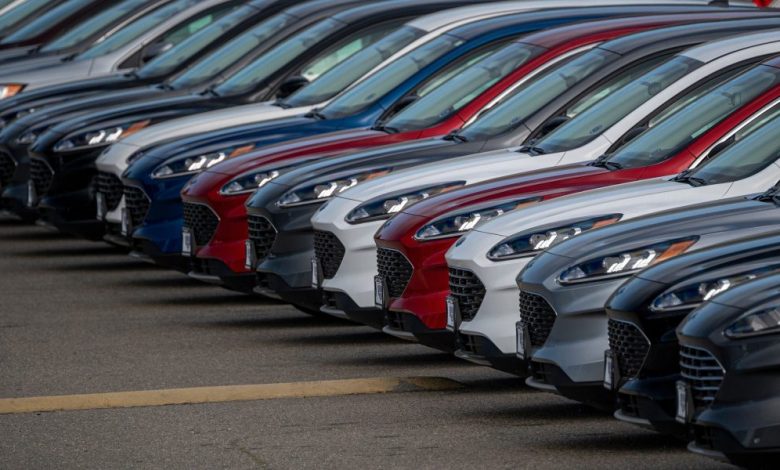Car payments are bringing Americans closer to the financial edge

It’s hard to get a solid picture of today’s economy as the lowest unemployment rate in 53 years counters headlines of mass layoffs at companies like Amazon and Microsoft. CEOs and economists can’t seem to agree on whether a recession or a soft landing is imminent.
One thing is for sure, though: more and more Americans are struggling to make their car payments. Banks have been warning of a possible wave of non-payment of loans for months.
Now, the latest data from Cox Automotive for January shows that the default rate for loans that are 60 days or more past due rose 2% compared to December and 20.4% year-on-year. Of delinquent loans, 1.89% were heavily delinquent, up from 1.84% in December and the highest rate since 2006.
Among subprime loans, 7.3% were heavily delinquent in January, up from 7.11% the previous month, and the rate was also the highest since 2006.
Last week, the American Car Center — a used-car dealership that targeted consumers regardless of their credit history — unexpectedly went out of business, leaving customers across the country confused about how (and to whom) to continue making payments.
Late Payments and Refunds
According to Cox Automotive, loan defaults rose 6.2% in January from December and 33.5% from a year ago.
Unsurprisingly, car pickups are on the rise. At the Manheim car auction company, the number of cars taken back increased by 11% in 2022 compared to the previous year, according to Bloomberg.
High interest rates have helped Americans struggle with their car payments. The average interest rate rose 12 basis points to 9.51% in January, according to Cox Automotive, after rising 53 basis points in December.
In the fourth quarter of last year, 15.7% of consumers financing a new vehicle committed to a monthly payment of $1,000 or more — the highest ever, versus 10.5% and 6.7%, respectively in the final quarters of 2021 and 2020, respectively, according to Edmunds.
“Because these car loans are generally prohibitive to start with, that means borrowers are getting closer to the financial edge every month,” Kathleen Engel, a law professor at Suffolk University, told Bloomberg.
News surfaced this week that Ford has applied for a patent on technology that could essentially target drivers about missed car payments. It could be used to remotely turn off a vehicle’s air conditioning, radio or engine, or to beep continuously. The wide-ranging patent filing even suggests that an autonomous vehicle could drive itself to a location that’s “more convenient” for a tow truck to pick it up.
“We apply for patents for new inventions in the normal course of business, but they are not necessarily indicative of new business or product plans,” Ford said in a statement.
But with Americans struggling to make their car payments, the news is hardly reassuring.
Learn how to navigate and build trust in your organization with The Trust Factor, a weekly newsletter exploring what leaders need to succeed. Login here.



